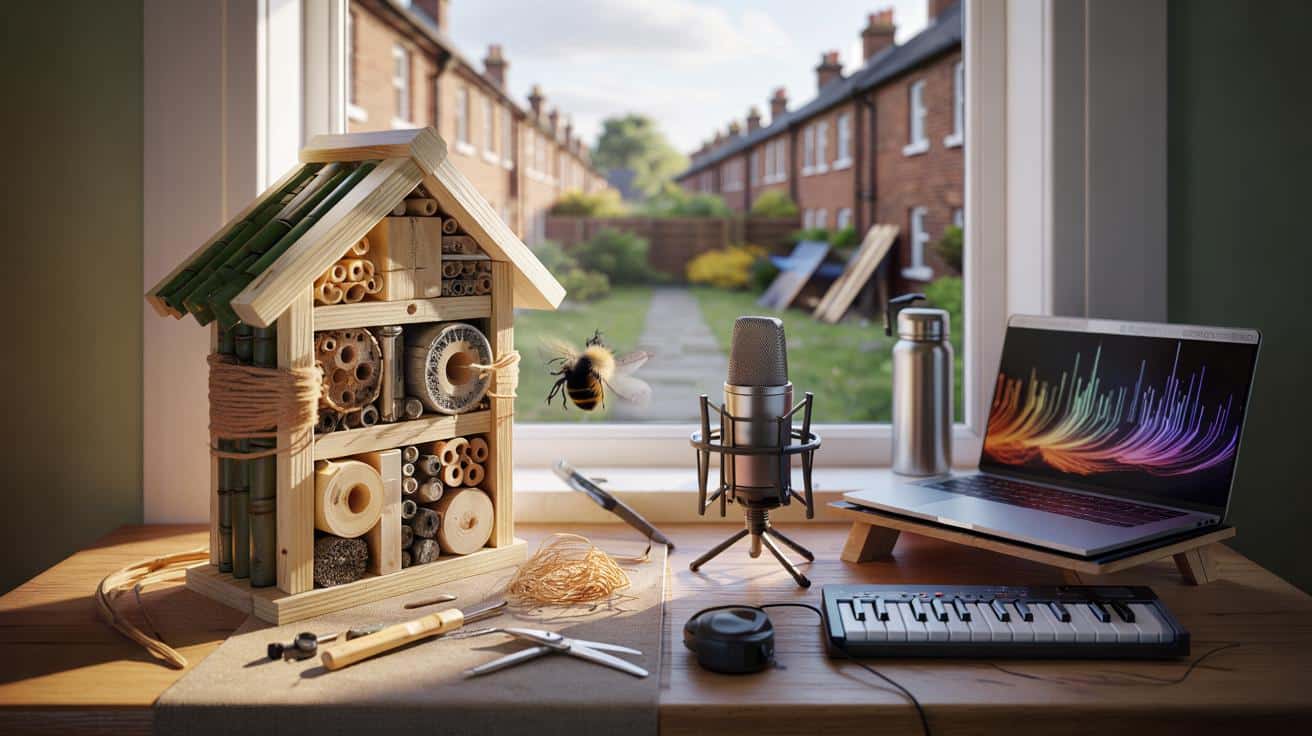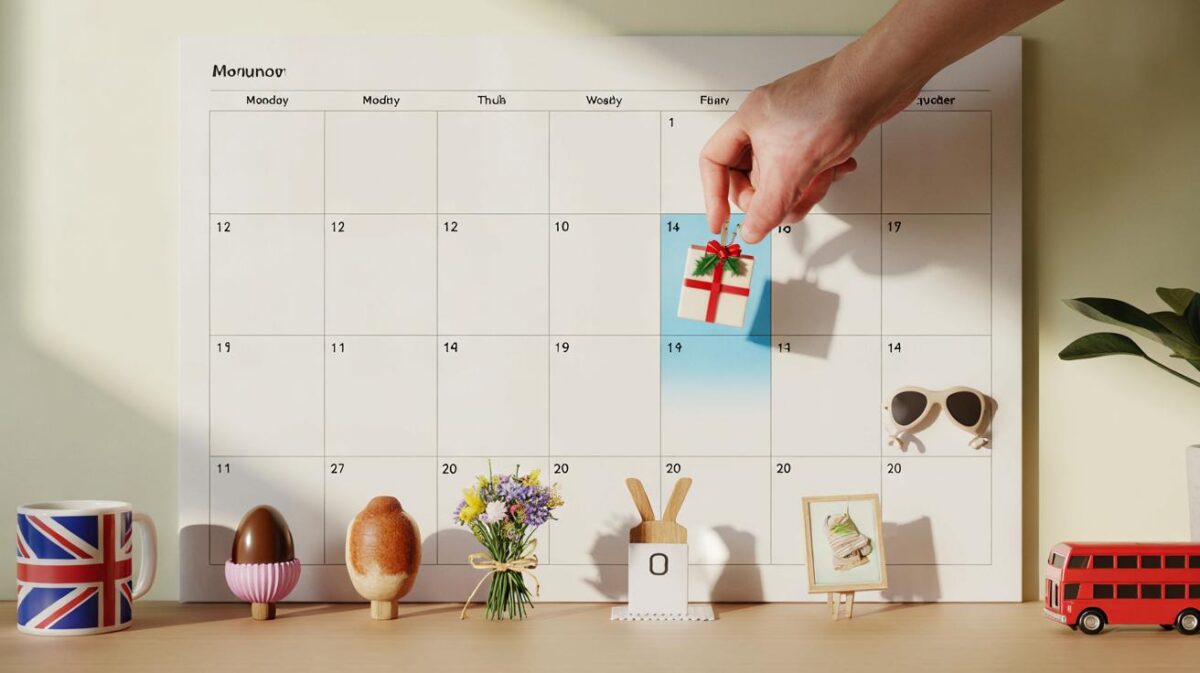Fresh research suggests a new class of micro‑earners is turning niche talents into paid gigs, from music hooks for local shops to handmade habitats for insects. The trend is gathering pace among younger workers, but mid‑lifers are quietly joining in, too.
What the new survey says
A poll of 1,400 UK adults with a side gig, commissioned by Tesco Mobile and fielded by OnePoll, paints a vivid picture. More than a quarter (29%) describe what they do as “quirky”. A striking 78% say their side work bears no resemblance to their main job. The generational split is sharp: 57% of Gen Z would consider going full time with their sideline, compared with 14% of baby boomers.
Side hustles are no longer just selling old tech. They now include custom jingles, line sitting and even bug hotels.
Yet many do not see themselves as entrepreneurs. Almost half don’t identify as small business owners, and half of those cite a simple reason: they feel they don’t earn enough for the label. That mindset can mean missed benefits, from tax allowances to cheap tools and professional advice.
From custom jingles to bug hotels
Two examples capture the moment. Custom jingles are bite‑sized audio logos or hooks written for small businesses, podcasters and charity campaigns. They pay for speed, originality and a recognisable sound. Bug hotels, meanwhile, are stacked wood, bamboo and brick structures that create nesting places for solitary bees and other insects. Gardeners, schools and eco‑minded cafes buy them to boost biodiversity and start conversations with customers.
Jingles trade on catchiness; bug hotels trade on care for nature. Both can be built at a kitchen table.
How these gigs work in practice
- Custom jingles: write a 10–30 second tune, record vocals or use royalty‑free loops, deliver a clean audio file, offer one revision.
- Bug hotels: source reclaimed wood and hollow stems, assemble a stable frame, add varied chambers, provide simple care advice.
- Line sitting: hold a place for product launches or visas, charge by the hour, provide time‑stamped updates.
- Quiz writing: sell themed rounds to pubs or workplaces, include clear scoring and tie‑breakers.
- AI‑assisted art: create assets or mock‑ups with transparency about tools used and rights cleared.
Money talk
How much could these bring in? Market listings suggest short jingles often sell in bands such as £50–£150 for a basic package and £200–£300 when commercial rights, multiple versions and fast delivery are included. Materials for a mid‑sized bug hotel can cost under £30 if you use off‑cuts; finished pieces commonly retail from £40 for a compact design to £120+ for a sturdy, decorative frame. Line sitting is typically priced per hour, with London rates rising for dawn starts or overnight queues.
Margins hinge on time. A tight jingle brief can be wrapped in a morning; a complex brand sound may take days. A single bug hotel can be assembled in an afternoon once the jigs are set, but drying, sanding and weatherproofing add hours. Batch‑making smooths the effort and lifts earnings per piece.
| Side hustle | Starter costs | Typical time per job | Price band seen in listings |
|---|---|---|---|
| Custom jingles | £0–£200 (mic, software) | 2–8 hours | £50–£300 |
| Bug hotels | £20–£60 (tools, timber) | 3–6 hours | £40–£120+ |
| Line sitting | £0–£20 (thermos, stool) | 1–12 hours | £10–£25 per hour |
| Quiz writing | £0–£10 (references) | 2–4 hours | £25–£80 per set |
| AI‑assisted art | £0–£30 (subscriptions) | 1–3 hours | £15–£100 per asset |
Rules, tax and reporting
The UK trading allowance lets many casual earners make up to £1,000 a year from self‑employment before income tax and National Insurance kick in. Go over that and you must declare earnings. New data‑sharing rules now require large online platforms to report seller income to HMRC, increasing visibility. Keep receipts, log mileage for deliveries, and store invoices in one place. If you use brand names in jingles, ensure you hold usage rights; if you construct wildlife habitats, avoid treated timbers and include safety notes.
Keep a simple ledger from day one. It protects your margin and saves stress at self‑assessment time.
What people say they want to try next
The same survey lists twenty ideas respondents would consider. A flavour of the stranger ones:
- Writing quiz questions for pubs and streaming events
- Making art with AI tools
- Paid queueing or “line sitting”
- Designing novelty tea towels
- Making quirky pottery and miniature food art
- Creating custom jingles for small businesses
- Hosting bespoke treasure hunts
- Offering “name my baby” services
- Renting out garden gnomes and vintage board games
- Acting as a professional mourner at funerals
- Renting sheds as tiny pop‑up shops
- Building bug hotels and custom scarecrows
- Silent‑disco dog walking
- Paranormal investigation tours
How to start without spending a fortune
Test demand before buying kit. For jingles, use a phone as a sketchpad and send rough hooks to three local businesses asking for feedback. For bug hotels, build one with reclaimed materials and offer it to a community garden in return for a testimonial. Photograph everything in daylight. Price your first five jobs modestly, gather reviews, then move to tiered pricing with rush fees and commercial licences.
Protect your time. Offer clear packages: one concept, one revision, fixed delivery window. Use a simple contract. Take deposits on work over £50. For in‑person gigs, share your live location with a friend and agree a check‑in schedule.
Related paths to try next
Combine micro‑gigs to steady income across the month. A creator who writes three jingles at weekends could add a fortnightly quiz set and a batch of bug hotels for spring markets. That mix spreads risk between digital and physical work. If you already craft for dollhouses, bug hotels draw on the same fine‑detail skills. If you record voiceovers, jingles and quiz hosting sit neatly beside them.
Think about seasonality. Bug hotels and scarecrows sell best from March to June. Jingles and quizzes hold year‑round demand. Line sitting peaks at launch weeks and visa windows. A simple calendar helps you plan stock, block out time, and smooth cash flow across quieter spells.








